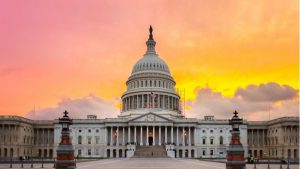Implementing a proposed Federal grant program designed to improve state and local government cybersecurity would cost a total of $2.89 billion over the next six years including both expected grant totals and the cost to run the program, according to an estimate from the Congressional Budget Office.
The Senate Commerce, Science, and Transportation Committee today approved legislation on broadband connectivity, protecting the public from online scams, and promoting industries of the future at a markup session March 11.
Despite high salaries and growth potential, the tech industry is struggling to hire enough cybersecurity experts.
The First Responder Network Authority (FirstNet Authority) Board announced today the appointment of Edward Parkinson is its new executive director.
The Senate Committee on Homeland Security and Governmental Affairs passed multiple cybersecurity bills, including the Cybersecurity Vulnerability Identification and Notification Act of 2019 and the Cybersecurity State Coordinator Act of 2020 at a March 11 markup.
The Cybersecurity and Infrastructure Security Agency (CISA) late last week issued a practical checklist to help executives “think through” infrastructure protection, supply chain, and cybersecurity issues in light of the COVID-19 coronavirus, and potential effects to workforce and operations.
Despite an increased focus on the gender imbalance in the tech workforce, a significant gender pay gap remains, according to a March 5 report from Dice, a career hub for technology professionals.
President Trump today signed into law a bill quickly approved by House and Senate this week that provides $8.3 billion of funding for Federal government response to the COVID-19 coronavirus, including vaccine and treatment development, support for state and local health agencies, and loans for small businesses impacted by the virus.
West Virginia Secretary of State Mac Warner announced Feb. 28 that the state will cease using the Voatz app to allow West Virginians living abroad and voters with disabilities to vote via smartphone.
The House voted late on March 4 to approve the Coronavirus Preparedness and Response Supplemental Appropriations Act (HR 6074) that would make $8.3 billion of new funding available for a “robust response” to the COVID-19 coronavirus, including vaccine and treatment development, support for state and local health agencies, and loans for small businesses impacted by the virus.













